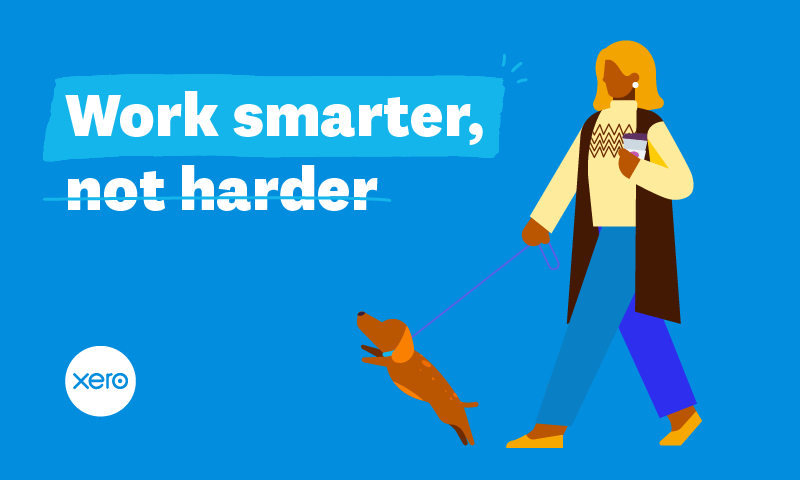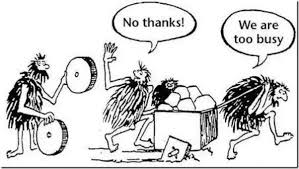Introduction to Psychology
(Spring 2025)
Course:PSYC 1100: Introduction to Psychology
Professor:Dr. Linda M. Woolf |  |
Office Hours:
- Monday, Wednesday, or Friday 9-9:50 or by appointment! Email to schedule a Zoom appointment!
- Phone: 314-246-7062
- Email through Canvas or woolflm@webster.edu
- Woolf Web Page: http://faculty.webster.edu/woolflm/
Text:
Stanger, C., & Frantz, S. (2023). Introduction to Psychology (v.4). Flatworld. ISBN: 978-1-4533-9952-1 (Cheapest if purchased or rented directly from the publisher - https://students.flatworldknowledge.com/course/book/28775).Psychological Contributions to Achieving the Sustainable Development Goals - https://www.apa.org/international/united-nations/contributions-sustainable-development-goals.pdf (also on Canvas under Modules)
Catalog Description
Introduces the breadth and diversity of contemporary psychology. Provides a foundation from which the student might progress to more advanced, specialized courses. Topics include learning, perception, biopsychological processes, childhood and development, adjustment and mental health, and social behavior.
Expanded Course Description:
Psychology can be defined as the scientific study of mental processes and behavior. Although psychology is most often associated with clinical issues (i.e. abnormal, personality), this makes up only a small portion of the field. Other specialties within the field include, to name a few, physiological, social, organizational, and developmental psychology. We cannot understand ourselves or the individuals around us without looking at how we develop, how we behave in a social context, or the physiological components of our behavior. Thus, this course will serve as an overview of the major fields within psychology with an emphasis on developing an understanding of psychology as the science of human thought and behavior. We will also learn to critically evaluate "common sense" knowledge about how people function.PSYC 1100 has been coded for the Social Systems and Human Behavior content area.
PSYC 1100 has been coded for the Critical Thinking skill area.
Course Objectives and Outcomes:
- Objective: To gain a better understanding of the field of psychology both historic
and current.
- Objective: To become familiar with the research methodology commonly used by
psychologists. To become familiar with the scientific method, and examine the benefits and
limitations of this method of inquiry as it relates to developmental psychology.
- Objective: To become familiar with the biological bases of behavior.
- Objectives: To develop an understanding of processes involved in learning and cognition.
- Objective:To develop an understanding of the various types of development that an individual experiences across the life-course.
- Objectives: To become familiar with the theories concerning psychological health and
disorders.
- Objective: To become familiar with the theories concerning human behavior in a social
context.
- Objective: To become familiar with how knowledge of psychology and the work of psychologists can be used to make a difference in the world!
Incoming Competencies/Prerequisites:
All students should be capable of integrating and evaluating information, critical thinking, and writing at the college level.
Class Meetings:
The class will meet on Monday, Wednesday, and Friday from 10:00 - 10:50. Attendance is strongly recommended as the material will be presented that is not in the book, and you will miss out on activities that will boost your learning. Besides, it is fun to get together and talk!
Course Requirements:
Six quizzes, three infographics, two article review papers, a group presentation/discussion, a critical thinking analysis, and a self-reflection paper.All grades will be assigned on a scale of 0 - 10 with:
90 - 100 A-, A Superior Work 80 - 89 B-, B, B+ Good Work 70 - 79 C-, C, C+ Satisfactory Work 60 - 69 D, D+ Passing, but less than Satisfactory (not passing if a requirement for the major or general education) Less than 60 F Failing
Percent of Grade:
Examinations 50% Infographic Application Project 10% Article Review Papers 15% Presentation and Discussion Lead 10% Critical Thinking Self-Analysis 5% Self-Reflection Paper 10% Quizzes: Six quizzes will be given, and the examination format will include multiple-choice and short answers. The quizzes will cover material presented in lectures, readings, and discussions. The lowest quiz grade will be dropped. POLICY STATEMENTS: All quizzes must be taken on the date scheduled. No make-up exams will be available for students without a documented excuse AND who discuss their situation with the professor prior to missing an exam. Students with learning challenges, documented learning disabilities, and students for whom English is not your first language should discuss with me how to take your quizzes in the Academic Resource Center.
Additional study materials have been placed or will be placed on Canvas for the class. For example, I will place selected slides from my lecture on this site prior to each quiz (not all slides will be put online and are only available after the lecture) and there is information related to “How to Study”—-research-based approaches for success! Infographic Application Project: An infographic blends information analysis, persuasive writing, and creative graphic layout in a way to teach others specific topics in psychology. You will be required to create and share with others in class three infographics.
- Infographic One: Topic related to biological psychology
- Infographic Two: Topic related to psychological disorders
- Infographic Three: Topic related to life-span development
For each infographic, you will first select a single topic as discussed in lecture/textbook and create an infographic to teach others about that narrow specific area. For example, you will not creating an infographic to teach all of biological psychology. Rather, you might create an infographic concerning a specific brain region and the role it plays in behavior or you might highlight a specific neurotransmitter and why everyone should know about the relationship of that neurotransmitter to psychological functioning. You will need to gather information beyond what is in your textbook or online lecture for this assignment! More info will be provided in the Canvas Assignment.
Self-Reflection Paper: At the end of the term, you will be asked to write a reflection paper concerning what you have learned in the class including an analysis of how the class has shaped your view of psychology and influenced your thinking about how you will use this information in your future.
Article Review Papers: Students are required to review two research articles as assigned in class and placed on Canvas. The specific requirements are given below:
- To facilitate the development of critical thinking skills students will evaluate three articles. Each analysis should be 3-4 pages in length (approximately 800 - 1200 words) and evaluate:
All article reviews are to be uploaded to Canvas. Students are required to complete two papers unless you are satisfied with your grades on the first paper. The top grade will be recorded. Typically, the first paper is the lowest grade. The feedback regarding APA format and the quality of the analysis results in higher grades on the second papers. A sample review will be provided.
Presentation and Discussion Lead: In pairs or small groups, you will briefly present information related to psychology's contributions to one of the UN Sustainable Development Goals and lead a discussion.
Critical Thinking Self-Analysis: In this course, you will have completed assignments aimed at increasing your understanding of psychology and developing your critical thinking skills. For the critical thinking assignment, you will be provided a form to complete where you will analyze how these various class assignments have helped to develop your critical thinking. You will also evaluate your own progress in developing the critical thinking skills defined by the university and the global citizenship project. Additional information and instructions will be provided with the assignment on Canvas.
Self-Reflection Paper: At the end of the term, you will be asked to write a reflection paper concerning what you have learned in the class including an analysis of how the class has shaped your view of psychology and influenced your thinking about how you will use this information in your future. You will also come up with a list of 10 of the most important things you have learned in class and explain why these are concepts your neighbors should know.
Policy Statements:
Use of Electronic Devices in the Classroom: Please respect others in the class by turning off all cell phones before entering the room. Text messaging during class is not acceptable. Laptops may be used in class but are only to be utilized for class related activities (e.g., taking notes). If it becomes apparent you are using the computer for non-class activities (e.g., checking your email, Facebook, playing games) then you may be asked to turn off your computer and refrain from bringing it into class in the future. Laptop use is restricted to the back or sides of the classroom so that other students are not distracted during lecture. Please be aware that according to research published in Psychological Science has demonstrated that taking hand-written notes leads to better processing of information and higher exam scores!Plagiarism (attempting to pass off the work of another as one's own) is not acceptable. Plagiarism includes copying all or part of another's writings (even a single sentence), inappropriate paraphrasing, using another student's paper as your own, submitting a paper for more than one class. All papers will be submitted to the university's plagiarism database for review. Plagiarism, either intentional or unintentional, will result in a grade of 0 for that assignment but also may be turned over to the appropriate university source for disciplinary action and a grade of F for the course. In addition, cheating on exams will also result in the same fate.
Here are some Web sites that will help you avoid the problem of plagiarism particularly plagiarism resulting from paraphrasing too closely to the original source. -
- Webster University Academic Integrity Page
- Establishing Authorship by Paul C. Smith, Alverno College
- How to Avoid Plagiarism Tutorial All students are required to complete and submit a copy of the “certificate of completion” for the following tutorial:
- The University of Indiana's Online Plagiarism Tutorial
AI Use Restricted
All work submitted in this course must be your own. Contributions from non-academic sources (such as AI tools) are prohibited. Contributions from approved sources must be fully acknowledged and properly quoted or paraphrased by you every time they are used. Failure to follow this policy constitutes a violation of academic integrity and may result in disciplinary action.
Additional Policy Statements
It should be noted that, as is common in many university courses, little time will be spent lecturing on topics adequately addressed by the text. Students are expected to arrive at class meetings having already read the material assigned, and to ask questions to clarify any areas that remain unclear. While every attempt will be made to explain or expand upon particularly difficult areas, the primary purpose of classroom lecture is to enhance, rather than to duplicate, the textbook material.
Students with disabilities who believe that they may need accommodations in this class are encouraged to contact me or the Director of the Academic Resource Center, as soon as possible to ensure that such accommodations can be implemented in a timely fashion.
Late withdraws from this class will not be approved by the instructor except in cases of emergency discussed with the instructor. No late withdraws will be approved on the basis of poor class performance.
This syllabus is subject to change at the instructor's discretion. All changes concerning course requirements will be provided in writing. Changes concerning exam dates may be made at the instructor's discretion and communicated verbally to the class.
It is understood that remaining in this course (not dropping or withdrawing from this course) constitutes an agreement to abide by the terms outlined in this syllabus and an acceptance of the requirements outlined in this document.
COURSE OUTLINE
Week Ending
Topic and Readings
January 17 Introduction to the class
What is psychology?
Success thanks to Psychology!
Readings:
- Stangor & Frantz, Chapters 1
- Canvas Module: How to Study Refresher!
January 24 Introduction to the Class Continued How Psychologists do Research
Readings:
- Stangor & Frantz, Chapter 2
January 31 How Psychologists do Research Quiz 1 - January 31 (Friday)
Readings:
- Stangor & Frantz, Chapter 2
February 7 Memory and Cognition Readings:
- Stangor & Frantz, Chapter 8
February 14 Biology of Behavior
Readings:Infographic One - Related to BioPsych due, February 15
- Stangor & Frantz, Chapter 3
February 21 Consciousness and the Two Track Mind (focus on sleep)
Readings:Article Review (Select One), Due February 22:
- Stangor & Frantz, Chapter 5
- Sustainable Development Goal 1 - No Poverty
Spindle, T. R., & Riener, C. R. (2013). The effect of anger and relaxation on the visual perception of distance. Psi Chi Journal Of Psychological Research, 18, 2-9.
Matteucci, A. J., Albohn, D., Stoppa, T. M., & Mercier, W. (2012). Exercise behavior among college students and sex differences in a health-promotive intervention. Psi Chi Journal Of Psychological Research, 17, 163-170.
Beginning of next week, Quiz 2 - Monday February 24
February 28
March 7Psychological Disorders Reminder Quiz Monday February 24
Readings:Infographic Two - Related to Psychological Disorders due, March 1
- Stangor & Frantz, Chapter 13
Quiz 3 - March 7 (Friday)
March 21 Developing through the Lifespan Readings:Infographic Three - Related to Life-Span Development due, March 22
- Stangor & Frantz, Chapter 6
- Sustainable Development Goal 4: Ensure inclusive and equitable quality education and promote lifelong learning opportunities for all OR Sustainable Development Goal 5: Achieve gender equality and empower all women and girls
March 28
April 4Development continued; Learning
Readings:Article Review (Select One), Due March 29:
- Stangor & Frantz, Chapter 7
- Sustainable Development Goal 13: Take urgent action to combat climate change and its impact
Brashier, E., Hughes, J. L., & Cook, R. E. (2013). A comparison of women in lesbian and heterosexual dual-income couples: Communication and conflict. Psi Chi Journal Of Psychological Research, 18, 170-175.
Sijia, L., Hughes, J. L., & Su Myat, T. (2014). The links between parenting styles and imposter phenomenon. Psi Chi Journal Of Psychological Research, 19, 50-57.
Quiz 4 - April 4 (Friday)
April 11 Stress, Health, and Human Flourishing
Readings:
- Stangor & Frantz, Chapter 10 (Stress section)
- Sustainable Development Goal 3: Ensure healthy lives and promote well-being for all at all ages OR Sustainable Development Goal 10: Reduce inequalities within and among countries
April 18 Personality Readings:Quiz 5 - April 18 (Friday)
- Stangor & Frantz, Chapter 12
April 25
May 2Social Psychology Readings:Critical Thinking Analysis due April 26
- Stangor & Frantz, Chapter 11
- Sustainable Development Goal 16 - Promote just, peaceful, and inclusive societies
Self reflection paper due May 3
See Final Exam Schedule Quiz 6 - See the final exam schedule
Back to Introduction to Psychology Page

